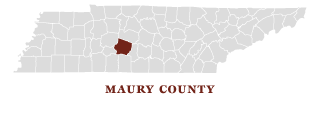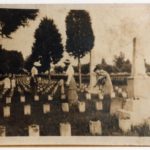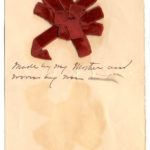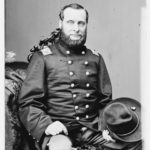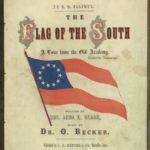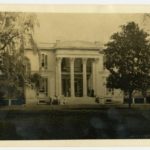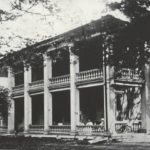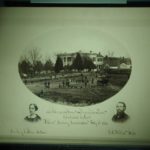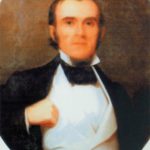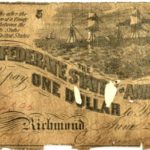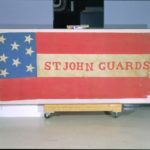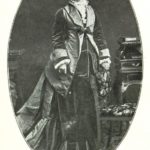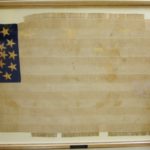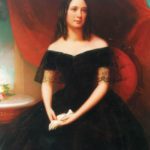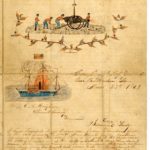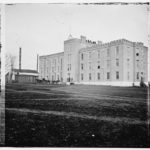Antoinette Polk

Frequently designed and hand-sewn by ladies’ organizations, flags and banners were powerful symbols honored by the women who made them and the men who relayed them. Carried on the field to inspire and lead troops into battle, regimental banners were often confiscated and highly prized as souvenirs of war. To receive such a spoil of war was a high honor. Antoinette Polk, daughter of Andrew Jackson Polk of Ashwood Hall, near Columbia, was said to have earned that recognition when she was only sixteen years old.
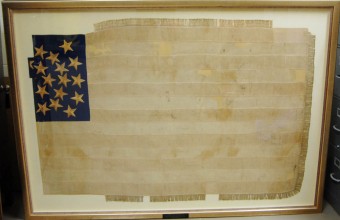
Abel Streight Brigade Banner.
Maury County Archives.
The flag appears to have been trimmed, particularly in the blue field and the border areas, with possible
portions taken as souvenirs.
View Object Details
While visiting her cousins in town, Antoinette heard that Colonel John T. Wilder’s “Lightning Brigade,” a Union unit, was approaching Ashwood Hall (burned 1874). Knowing that there were Confederate soldiers recuperating at the house, she jumped on her horse and raced home in time to warn them. When General Nathan Bedford Forrest, who was passing through the area, heard of Antoinette’s bravery, he honored her with a banner captured from Colonel Abel Streight’s Brigade, which had surrendered to Forrest in May 1863 at the Battle of Cedar Bluff.
After the war, Antoinette moved to France with her father and brother. She met and married Anthanase de Charette, then a colonel in the French Zouaves, who later became a baron. The Civil War banner became a prized family keepsake stored in a drawer for years until Antoinette’s granddaughter gave it to the Maury County Archives. Note the notches in the banner, which were probably cut by Confederate soldiers and taken as souvenirs.
— Bob Duncan, Director, Maury County Archives, and Celia Walker, Director of Special Projects, Vanderbilt University Libraries
Further Reading
- Mary Polk Branch, Memoirs of a Southern Woman ‘Within the Lines,’ and a Genealogical Record (Chicago: The Joseph G. Branch Publishing Co., 1912) Available at Documenting the American South, The University of North Carolina at Chapel Hill
- Larry G. Eggleston, Women in the Civil War: Extraordinary Stories of Soldiers, Spies, Nurses, Doctors, Crusaders, and Others (Jefferson, N.C.: McFarland, 2003): 156
- Thomas Wright, The Scotch-Irish in America: Proceedings of the Scotch-Irish Congress , Vol. 1 (Cincinnati: Robert Clarke & Co., 1889): 148-150
- Yeatman-Polk Papers (1804-1970), Tennessee State Library & Archives

